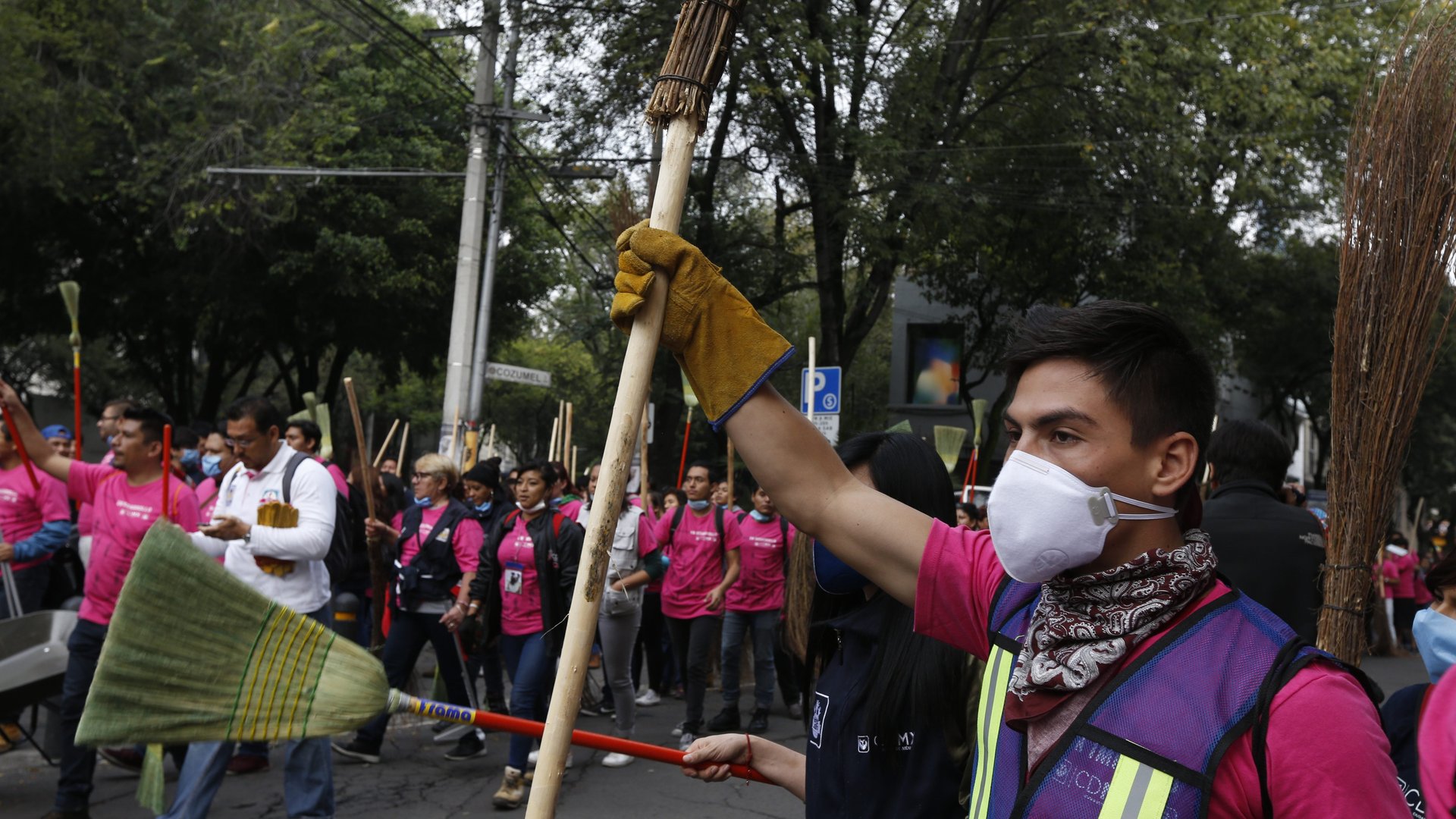In both the US and Mexico, citizens led better disaster response than their governments
The 7.1-magnitude earthquake that jolted Mexico City on Sept. 19 unleashed an eruption of extraordinary needs.


The 7.1-magnitude earthquake that jolted Mexico City on Sept. 19 unleashed an eruption of extraordinary needs.
From one moment to the next, people began to need rescue, medical treatment, shelter, water, food, safety, comfort. And, more importantly, they needed accurate information about where, amid the vastness of one of the world’s largest cities, all those needs were flaring up.
The government can’t be everywhere all the time. Citizens, however, can. Shortly after the quake, a group of journalists, activists, and techies put together an online platform to harness the eyes and ears of hundreds of chilangos, as the capital’s residents are known. The volunteers fanned across the city, some on bikes, reporting back data which were posted on a website, Verificado19S. Its goal was to “channel the desire to help to places that need it,” according to a video posted by its organizers a day after the tremor.
It’s a rigorous effort (verificado means verified; 19S refers to the data the earthquake struck), based on detailed questionnaires designed to winnow out false positives. Informants must report only what they see with their own eyes, or what they hear from at least two people who in turn saw it with their own eyes. The data are then relayed via Twitter feed and an online map that underpin “a socially-engineered citizen logistics machinery,” says Antonio Martínez Velázquez, a founder of Horizontal, one of the media outlets that helped organize the site. That apparatus has been used by thousands of people to distribute help and even save lives, he says.
Over the past few weeks, the citizens of Houston, Puerto Rico, and other places have also seen natural disasters surpass the government’s ability to respond—at least initially. Citizen-led online tools have sometimes filled the gap. After hurricane Harvey ravaged Houston and emergency services were swamped, local volunteers put together a makeshift call center to take pleas for help from stranded residents. Based on that information, the volunteers deployed an army of private boat owners to fetch them, coordinated volunteer doctors and nurses, and even served as moral support for those still waiting to be rescued.
In Mexico City, Verificado19S also showed how civil society can in some ways be more adept at emergency management than elected officials—in particular, at preventing false information from spreading. In the most extreme case, senior Mexican officials told the media that a girl called Frida Sofia was alive under the rubble of a collapsed school, and granted the country’s biggest TV network, Televisa, access to the building. After some 24 hours of nail-biting coverage that made Frida Sofia a worldwide story, it emerged that she didn’t exist—a severe blow to the credibility of the rescue agencies and the media.
In contrast, Verificado19S has some 500 volunteer reporters on the ground, some of whom stay put at the same site for days, closely following any changes. The picture they paint is much wider, more granular, and a better reflection of reality.
With no motive to increase approval ratings, they also enjoy a higher level of trust. In the wake of the quake, political parties are being accused of opportunism, and some officials who have showed up at disaster zones have been heckled.
The benefits of that trustworthiness go beyond people believing the information on Verificado19S; it’s also spurred even more citizen participation in the shape of donated goods and man hours, thus multiplying the power of civil society.
Average citizens may not be as inclined to pitch in when the call comes from the government. For example, when president Enrique Peña Nieto’s administration tried to use the same technique as Verificado19S, posting a request for blankets, tarps, and cots on Twitter, citizens reacted angrily. “You have to be very cynical in life to ask having not helped on the basics when they were most needed,” reads one response.
“Let’s help the government to collect one gram of shame,” this one reads, using more colorful language in Spanish. ”By donating a little bit of your shame, you can help change Mexico’s political life.”
Verificado19S shows how small personal contributions can have a big impact on communities, even when there’s no emergency. “We proved that we can organize in an orderly way, very fast, and that we are contributing to a public benefit,” said Martínez Velázquez. He already has some ideas of how the network can be deployed for other endeavors, such as holding the government accountable during the rebuilding process, or monitoring next year’s presidential elections.